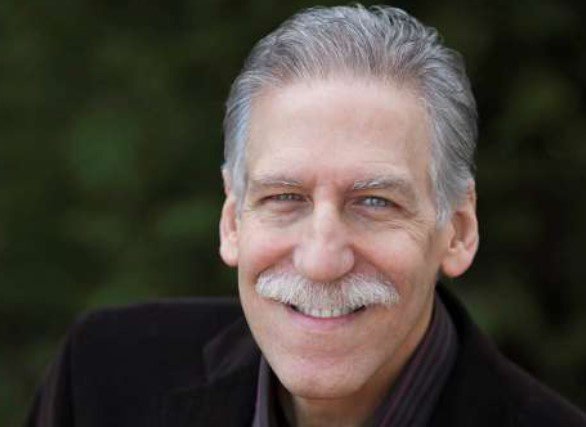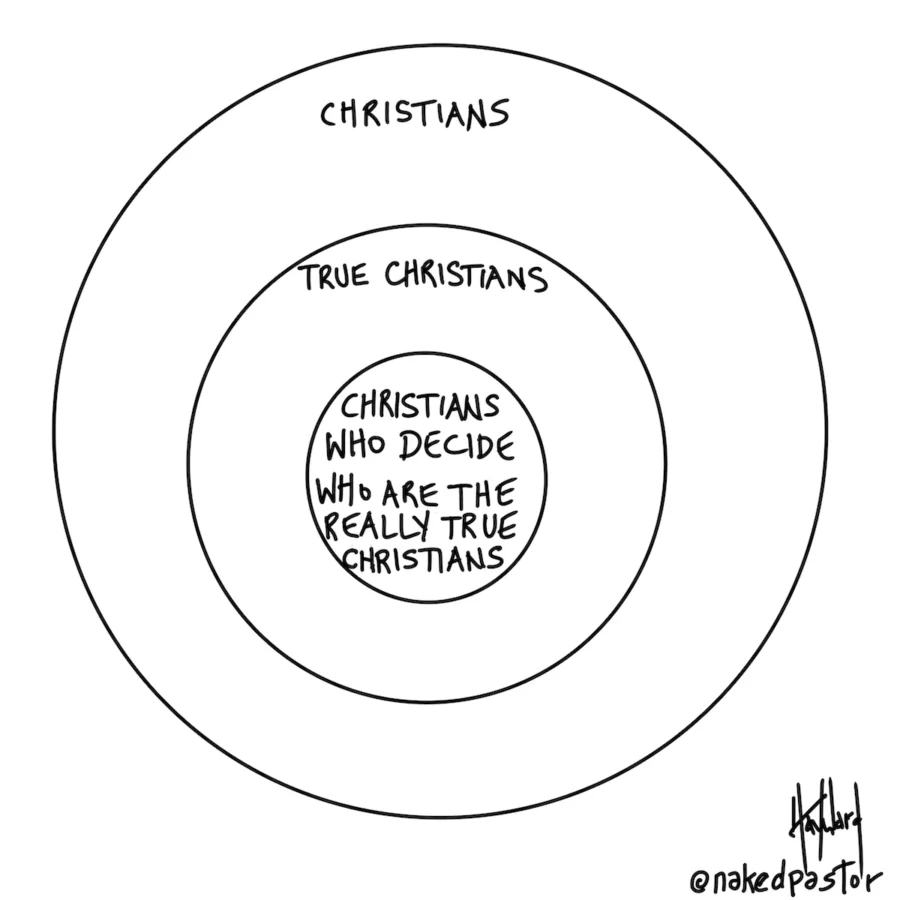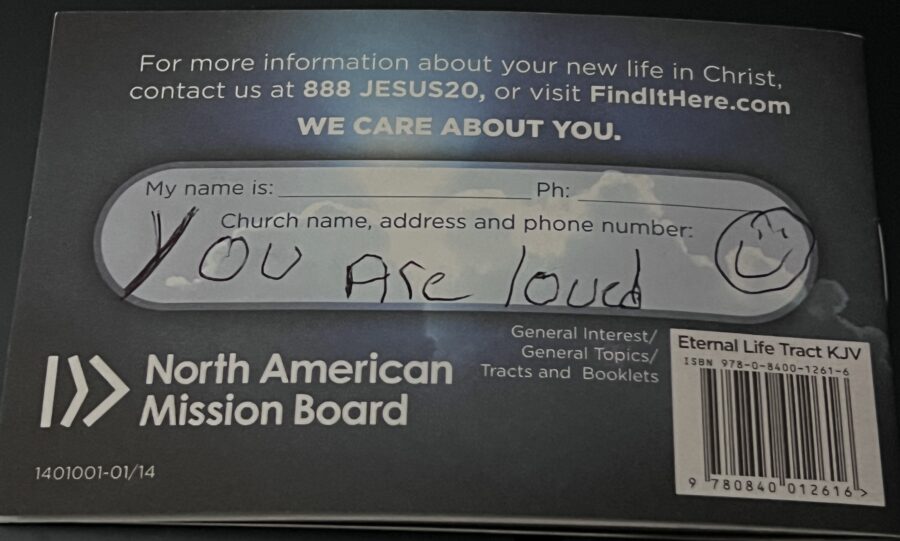
Michael Brown, a Messianic Jew and Christian apologist, stands accused of inappropriate sexual conduct with his secretary years ago and having an allegedly non-sexual “emotional” relationship with another woman. For those of us who frequently swim in the putrid waters of Evangelical sexual misconduct, claiming immoral, and even criminal behavior is “emotional” in nature is a common ploy used by accused preachers to skirt sexual misconduct allegations. More often than not, when the truth is revealed, we find out their behavior was, in fact, physical. Not that “emotional” affairs are okay, by the way. They, most certainly, are not.
In December 2024, The Roys Report reported:
“Erin” was one of millions of believers whose faith in God was so transformed by the Brownsville Revival of the mid-1990s that she accepted a secretarial job at the revival’s ministry school in Pensacola, Florida. But in 2002, the 21-year-old suddenly cleared her desk, quietly left the state, and has struggled with her faith ever since.
Erin told The Roys Report (TRR) she left because she felt trapped when revival leader and FIRE School of Ministry founder Michael Brown—a man she called “Dad”—would frequently cross physical boundaries. He’d hold her hand, kiss her on the lips, and slap her bottom, she said.
“He was supposed to be a spiritual father,” Erin said. “He was supposed to look after me.”
….
TRR keeps alleged victims of sexual harassment and clergy sexual abuse anonymous, so Erin is a pseudonym. However, we confirmed her identity with former FIRE staff Kris Bennett and former FIRE missionary Katherine Marialke.
…
Last month, as TRR began reaching out to Brown for comment on this story, Brown told board members for The Line of Fire about Erin’s allegations, board member Cindy Panepinto told TRR.
Panepinto said Brown also revealed an emotional connection he had with a second woman more than 20 years ago,
“There was no physical aspect of that, but it was a soul tie,” Panepinto said of the second woman. “It was something he repented of to his wife and they both took care of it with their spouses.”
Two weeks ago, The Line of Fire Board hired the law firm Mitchell, Stein, Carey, and Chapman to conduct a third-party investigation. Lee Stein is a former U.S. attorney and former Arizona assistant attorney general.
Line of Fire board member Jonathan Bernis said the ministry will make the firm’s final report public when the investigation is complete.
In a written statement to TRR, Brown said he’s in agreement with the investigation because he’s “shocked and horrified” by the accusations, some of which he said are “false statements” and “mischaracterizations.” Brown denied ever committing adultery and said all interactions with Erin were “nonsexual” but lacked judgment.
“(A)spects of my interaction with her, although totally non-sexual in every way, reflected a lack of judgment on my part,” Brown wrote. “(I)f it’s true that for 23 years she has carried this pain and I am responsible for it, I am beyond mortified and would plead forgiveness and the opportunity to bring healing and restoration.”
….
In 1999, at age 18, Erin attended the Brownsville Revival School of Ministry.
Then in 2000, John Kilpatrick, former pastor of Brownsville Assembly of God where the revival originated, clashed with Brown over the direction of the ministry and fired Brown from his position as president of the Brownsville school.
….
In response, Brown started the FIRE School of Ministry. It would remain in Pensacola until 2003, when Brown relocated it to North Carolina.
Erin followed Brown to FIRE, which is about the time when she says Brownasked her to call him, “Dad.” Since her home life was difficult, she initially enjoyed his attention and the notes they’d write to each other.
….
Erin said she hadn’t been at FIRE even a year before Brown initiated physical touching. Once, she said Brown made a big deal of the handholding to other people while together in a vehicle.
“He lifted it up in the truck . . . and he’s like, ‘You all know that I think of (Erin) as my daughter,’ and said, ‘That’s why we’re holding hands because she’s like a daughter to me,’” Erin said.
Then one day when they were alone in his office, she said he asked for a kiss on the lips. She didn’t want to do it, so she gave him a chaste peck. But she said kisses on the lips became a pattern of their goodbyes when they’d been alone.
“It was no longer (Brown) was asking for a kiss,” she said. “It was (Brown) leaning down to get a kiss. . . . I knew I couldn’t stop it or I felt I couldn’t stop it.”
Erin said Brown also began smacking her rear end with his hand, which made her uncomfortable.
….
A disturbing incident happened when Erin was housesitting for the Browns while they were away, she told TRR. The Browns told her she could sleep in their bedroom in their newly-built house, since the other bedrooms weren’t finished.
Erin said she would often leave short encouraging notes in Brown’s Bible, desk drawers, or coat pocket, and sometimes he’d write a note for her in return. So, she opened the drawer of his nightstand to hide a note for him when his handwriting on a yellow legal pad caught her eye. But she said Brown’s words described an inappropriate situation Brown had with a married woman associated with the Brownsville school.
“The letter basically stated that they were having a talking relationship and how they would dream about having sexual relations with each other and what they wanted to do with each other, how she wanted to wrap her legs around him, how he played into it,” Erin said.
Previously, she said she assumed the interactions she’d had with Brown, which sometimes felt off, were what a healthy father-daughter relationship should be. But reading that note made her see the interactions in a new light.
….
Last November as Brown was involved in talks about a third-party investigation of International House of Prayer founder Mike Bickle, Londa Parker texted Brown. She wrote that Brown also should have been subjected to a third-party investigation for the “inappropriate” interactions with Erin.
Brown disagreed, texting back, “(T)he reason for a third-party investigation is because of charges of adultery or criminal behavior, obviously none of which apply to me, thank God.”
Parker wrote back, “I think my point is that isn’t Mike Bickle denying the accusations? The need for an investigation is to find out the truth.”
Brown told Parker the difference is that Erin had told a FIRE leader at the time that nothing sexual happened between them. Brown added: “And of course, I will keep our interaction private, as I know you will.” However, Parker instead shared the texts with TRR.
A couple months ago, Gladstone heard about the butt-smacking and kissing allegations and confronted Brown for the second time.
“I addressed him for never telling us, the four main leaders,” Gladstone told TRR. “He apologized for that, and then he assured me that all was well. He said that he took care of it, whatever it was that was going wrong in him.”
But Gladstone said he’s not satisfied with Brown’s response.
“I would never treat my daughter that way,” Gladstone said. “So, I say that as a dad. I say that as a reader of Scripture and as a leader that would require for me a long way away from ministry and complete transparency and a long road of healing.”
You may read the entire story here.
Keep in mind, Brown is known for his preaching against sexual sin. Yet, we still have another preacher allegedly not practicing what he preaches. Shocker, right?
Brown is an apostolic elder [a made-up title] at Mercy Culture Church in Forth Worth, Texas. Recently, Mercy Church held a conference where its pastor Landon Schott claimed the allegations against Brown were “gossip and slander.” Schott added:
The accuser of the brethren is going after men of God that have given their lives to build the kingdom.
In other words, Satan is going after men like Brown, who have given their lives to build God’s Kingdom.
Schott is evoking comedian Flip Wilson with the notion that the moral failures of Evangelical clerics are due to Satan, and not personal moral failings.
Of course, there is no Devil, so the blame for Brown’s inappropriate behavior is his alone.
After evoking Evangelicalism’s number one excuse for sin — Satan — Schott said:
Dr. Brown, we honor you! We celebrate you! And this Presence Driven Church and community of pastors is behind you!
With that, the 1,500 or so pastors and attendees in attendance stood to their feet and cheered for Brown.
In a court of law, Brown is innocent until proven guilty, but since he has already admitted to inappropriate behavior, it seems to me that cheers and applause are not warranted. Alas, Brown is a celebrity preacher, and we know when it comes to Evangelical celebrities, they are rarely held to the same standard as the rest of us. Brown will likely hibernate for a while, waiting until Evangelicals find other disgraced preachers to cheer for. Evangelicals are quite forgiving when their idols “sin,” and that’s why men such as Brown will always find a church or ministry to call home.
Bruce Gerencser, 68, lives in rural Northwest Ohio with his wife of 47 years. He and his wife have six grown children and sixteen grandchildren. Bruce pastored Evangelical churches for twenty-five years in Ohio, Texas, and Michigan. Bruce left the ministry in 2005, and in 2008 he left Christianity. Bruce is now a humanist and an atheist.
Your comments are welcome and appreciated. All first-time comments are moderated. Please read the commenting rules before commenting.
You can email Bruce via the Contact Form.











